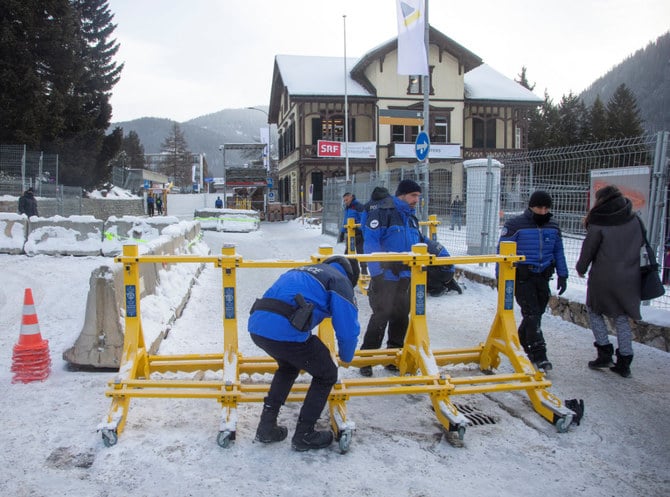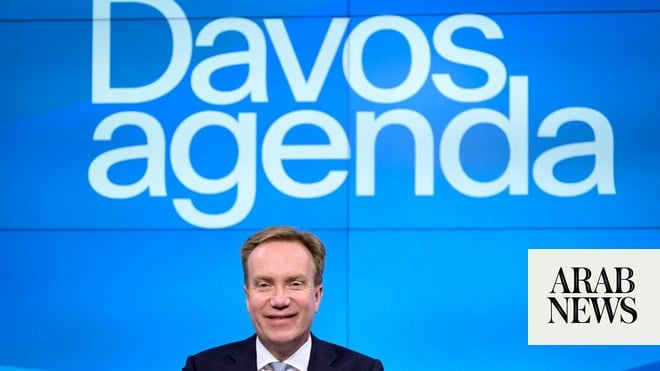
78 percent of survey respondents said they expect ‘economic confrontations’ and ‘domestic political polarization’ to rise in 2020
LONDON: The World Economic Forum’s Global Risk Report - traditionally the curtain raiser to the Davos annual meeting - is its most gloomy in years, highlighting economic and geopolitical strain as immediate threats and climate change as the dominant long-term challenge facing the world.
In stark terms, the report stated” “Economic and political polarization will rise this year, as collaboration between world leaders, businesses and policy-makers is needed more than ever to stop severe threats to our climate, environment, public health and technology systems.”
World leaders gather next week in the Swiss town against a background of increasingly frequent environmental crises raging from the wild fires in Australia to the floods in Indonesia, as well as a face-to-face confrontation between the US and its Middle East allies against Iran.
The US President, Donald Trump, is expected to lead a big American delegation, while it is believed the Iranians have canceled their plans to attend the 50th annual meeting in the Alpine resort. Big delegations are expected from Saudi Arabia, the UAE and other Gulf countries.
The report forecasts a year of increased domestic and international divisions and economic slowdown. “Geopolitical turbulence is propelling us towards an unsettled unilateral world of great power rivalries at a time when business and government leaders must focus urgently on working together to tackle shared risks,” the WEF said, unveiling the report in London.
Over 750 global experts and decision-makers were asked to rank their biggest concerns in terms of likelihood and impact. Some 78 percent said they expect “economic confrontations” and “domestic political polarization” to rise in 2020.
This would prove “catastrophic,” the WEF said, particularly for addressing urgent challenges like the climate crisis, biodiversity loss and record species decline. The report pointed to a need for policy-makers to match targets for protecting the Earth with ones for boosting economies – and for companies to avoid the risks of potentially disastrous future losses by adjusting to science-based targets.
While the short-term outlook is troubled by economic and political stresses, the long-term view is if anything even more pessimistic. For the first time, the top five threats on a 10-year time-scale are all related to the environment.
The polled experts highlighted extreme weather events, failure of global plans to deal with climate change, environmental damage caused by humans, major biodiversity and eco-system loss, and major natural disasters as the big threats facing humankind over the next decade.
Borge Brende, WEF president, said: “The political landscape is polarized, sea levels are rising and climate fires are burning. This is the year when world leaders must work with all sectors of society to repair and reinvigorate our systems of cooperation, not just for short-term benefit but for tackling our deep-rooted risks.”
The risk report is prepared by WEF in partnership with insurance companies Marsh & McLennan and Zurich.
Marsh chairman John Drzik said: “High profile events, like recent wildfires in Australia and California, are adding pressure on companies to take action on climate risk at a time when they also face greater geopolitical and cyber risk challenges.”
Peter Giger, chief risk officer of Zurich, warned of the urgent need to adapt faster to avoid the worst and irreversible impacts of climate change and to do more to protect the planet’s biodiversity.
“We are already seeing companies destroyed by failing to align their strategies to shifts in policy and customer preferences. Transitionary risks are real, and everyone must play their part to mitigate them. It’s not just an economic imperative, it is simply the right thing to do,” he said.











